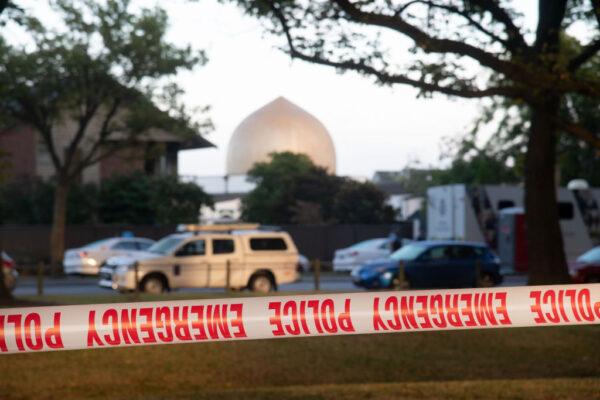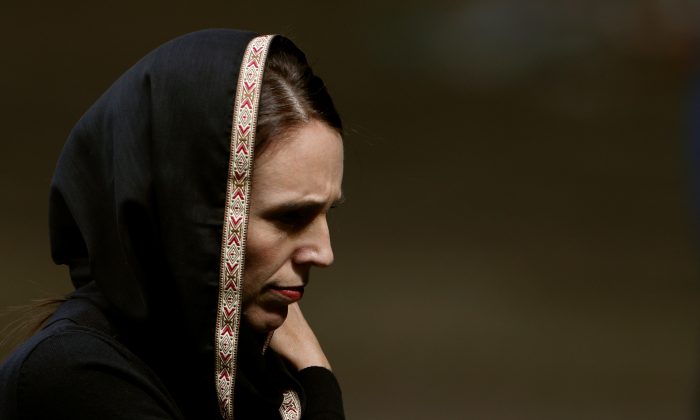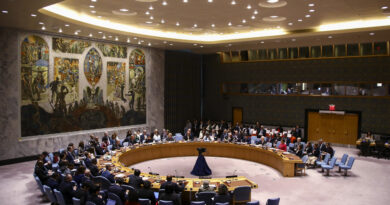New Zealand Withdraws Funding for Ardern Initiative Targeting Online Extremism
The Christchurch Call was established by Jacinda Ardern and Emmanuel Macron in response to the 2019 mosque shooting event.
An initiative against online extremism, funded by the government, was launched by former New Zealand Prime Minister Jacinda Ardern after a gunman attacked a Christchurch mosque in 2019.
The Christchurch Call, supported by taxpayer money, was created during Ardern’s term along with French President Emmanuel Macron. Its goal was to eradicate online extremist content by bringing content platform providers together following the tragic events where Australian Brenton Tarrant killed 51 people in two Christchurch mosques and live-streamed the atrocity on Facebook.
The Call was endorsed by 25 governments and online service providers, with a diverse community including 56 governments, 19 online service providers, 13 partner organizations, and over 50 civil society organizations.
Governmental funding for the initiative will cease on June 30, transitioning to management by a charitable non-governmental organization.
A new foundation for the Christchurch Call was announced by Jacinda Ardern and New Zealand Prime Minister Chris Luxon.
President Macron noted the progress in building a global network to combat online extremism since 2019.
“Our dedication to this mission remains strong, and I believe that this new phase of the Call lays a solid foundation for its future and the new obstacles we must overcome, including AI-generated content,” he remarked.
Chris Luxon emphasized the vital role that individuals impacted by the mosque shootings played in the initiative’s ongoing success.
“Established in 2019, two months after the tragic events in Christchurch, the Christchurch Call has allowed us to address violent extremism online. In announcing this development, I particularly want to recognize the Muslim community in Christchurch and express gratitude for their continued engagement in the Call’s activities,” he mentioned.
Jacinda Ardern will continue as an unpaid advocate for the Call, having served as a special envoy since 2023. Her role will involve fostering dialogue with leaders, conducting outreach, and advocating to elevate the Call’s profile, according to the statement.
“I express my gratitude to Dame Jacinda Ardern for championing and guiding the Christchurch Call, which has mitigated online violent extremism. I offer my best wishes to her and the Christchurch Call as they progress into the next phase of development,” Chris Luxon stated.
“The Christchurch Call represents our collective effort to prevent another tragedy like March 15 from happening to anyone else. While it was a dark time for us, my recent visit in February with those affected showed me there is still strong support for the continuation of this work. Together, we are moving forward!”

Political Reaction
National’s coalition partner, the ACT party, supported the government’s decision to shift away from direct involvement, stating it was “unclear” why New Zealand taxpayers had to cover the costs.
“ACT welcomes the prime minister’s choice to defund the Christchurch Call,” remarked ACT Public Service spokesman Todd Stephenson in a press release.
“Although the intentions of the Christchurch Call were noble, history urges caution when governments and corporations collaborate on determining what information people can access. Some of the world’s largest companies have supported the Christchurch Call. If they wish to retain a former New Zealand prime minister as a special envoy, they should bear the financial responsibility,” he added.

How Does the Christchurch Call Work?
In 2021, Ardern outlined the Call’s goal of fostering a “free, open, secure internet.”
Countries signing the Call pledge to implement measures to prevent the spread of terrorist and violent extremist content online while upholding human rights and fundamental freedoms.
Technology companies joining are committed to taking concrete actions to prevent their platforms’ misuse for terrorist and extremist content, including investing in technology for detection and removal of such content.
Multiple initiatives and projects have been initiated to support the Call’s commitments, including the development of technology tools to identify and eliminate extremist content, as well as initiatives to enhance digital literacy and resilience against online radicalization.
Despite progress, challenges persist in fully executing the Call’s mandates, such as defining terrorist and extremist content, balancing security and freedom of expression, and evaluating the effectiveness of implemented measures.





